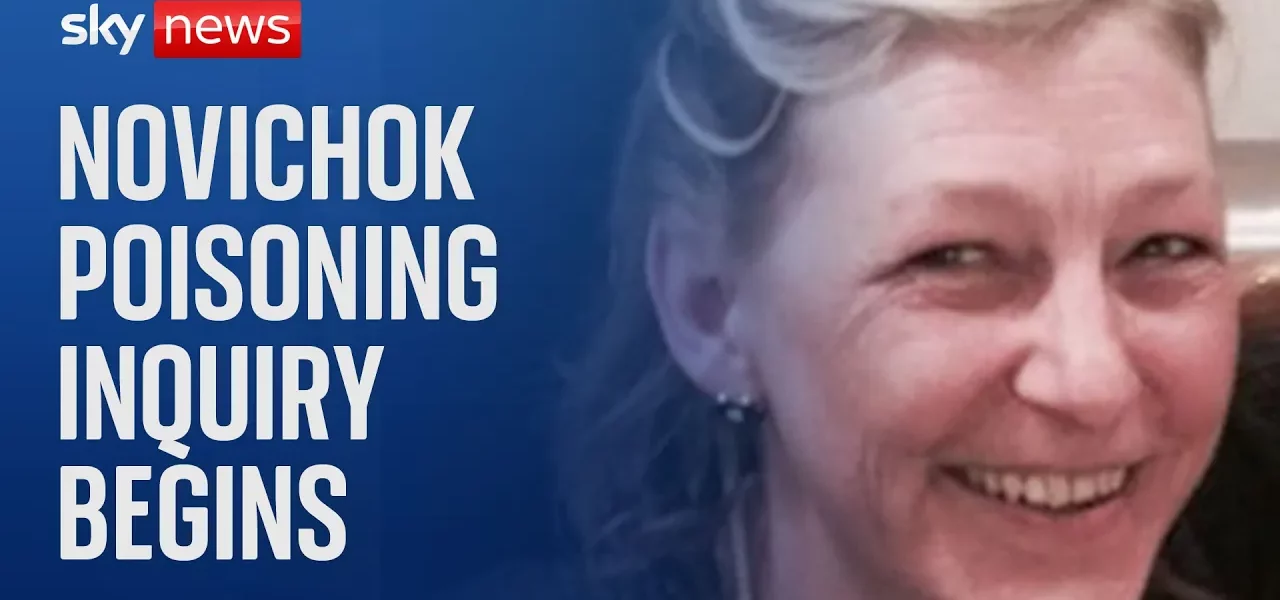Public Inquiry into the Death of Dawn Sturgess: A Tragic Tale of Poison and Intrigue

This article delves into the public inquiry surrounding the tragic death of Dawn Sturgess, who fell victim to a Russian nerve agent in 2018. It explores the events leading to her demise, the implications of the incident, and the ongoing investigation into this shocking international affair.
Introduction
The death of Dawn Sturgess in July 2018 shocked the public and highlighted the dangers of international espionage. Sturgess’s tragic fate was intertwined with the poisoning of former Russian double agent Sergei Skripal, creating a complex narrative that captivates global attention. The public inquiry into her death aims to uncover the circumstances that led to this deadly incident, revealing the broader implications of state-sponsored assassinations and the risks involved in geopolitical conflicts.
The Background of the Case
In March 2018, Sergei Skripal and his daughter Yulia were poisoned with a nerve agent known as Novichok in Salisbury, England. This incident was widely believed to be an assassination attempt orchestrated by Russian agents, leading to severe diplomatic tensions between the UK and Russia. The inquiry into the circumstances surrounding Sturgess’s death brings forth crucial details regarding the timeline and implications of these events.
The Poisoning of Sergei Skripal
Sergei Skripal, a former Russian intelligence officer, had defected to the UK and was living under the protection of British authorities. The poisoning incident raised alarms regarding the lengths to which state actors would go to eliminate perceived threats.
The Aftermath of the Poisoning
- Increased security measures across the UK.
- Heightened tensions between the UK and Russia.
- International investigations into the use of chemical weapons.
The Tragic Death of Dawn Sturgess
Four months after the Skripal poisoning, Dawn Sturgess was exposed to Novichok when she sprayed it from a perfume bottle, mistakenly believing it to be a legitimate fragrance. This tragic mistake led to her untimely death and ignited a public inquiry into the circumstances of her exposure.
Details of the Incident
On June 30, 2018, Sturgess and her partner Charlie Rowley found a bottle that they believed contained perfume. Unfortunately, this bottle held enough nerve agent to kill thousands. The inquiry revealed that the reckless disposal of this toxic substance demonstrated a shocking disregard for human life.
The Inquiry’s Focus on Sturgess
The inquiry has emphasized the need to understand how such a dangerous substance could be carelessly discarded, leading to Sturgess’s death. The chair of the inquiry, Lord Hughes, noted that while this was a private tragedy, it also represented a significant public concern regarding safety and international relations.
Key Testimonies in the Inquiry
The inquiry has seen various testimonies, including insights from law enforcement and emergency responders who were first on the scene. Notably, Sergei Skripal and his daughter are not expected to provide live evidence due to security concerns, but their prior statements have played a crucial role in framing the narrative of the inquiry.
Evidence from Sergei Skripal
In a police statement, Skripal alleged that the assassination attempt was ordered by Russian President Vladimir Putin. This assertion aligns with the British government’s position, which has condemned the actions of the Russian state.
Upcoming Testimonies
- Dawn Sturgess’s mother will provide her testimony.
- Emergency responders will recount their experiences at the scene.
- Experts in chemical weapons may offer insights into the nerve agent used.
Conclusion
The public inquiry into the death of Dawn Sturgess serves as a critical examination of the events surrounding her poisoning and the broader implications of state-sponsored violence. It underscores the importance of accountability and the need for international cooperation to prevent similar tragedies. As the inquiry progresses, it is essential to remain vigilant about the threats posed by chemical agents and the geopolitical tensions that can lead to such devastating outcomes. For updates on this ongoing inquiry and related international affairs, stay tuned to our coverage.
“`




